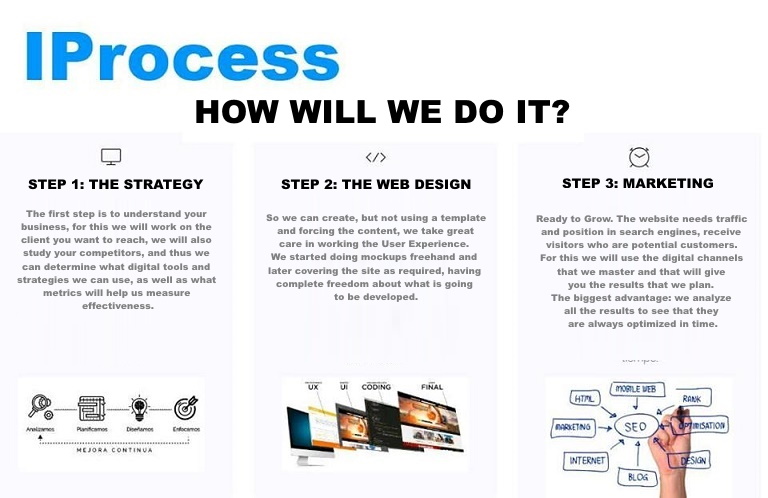WEB IProcess Pyme LITE!
Ideal for small companies that need productive modules, 10 corporate emails, 5 sections, 20 product catalog, 5 SEO campaigns, e-commerce.

 Español
Español
 English
English
Johnson & Johnson conducts trials of a treatment that has so far been successful in clinical trials
Diabetes is a chronic disease that occurs because the pancreas does not synthesize the amount of insulin that the human body needs, produces it of an inferior quality or is not able to use it effectively. The insuline is an hormon produced for the pancreas.
The companies Johnson & Johnson and ViaCyte reached an agreement to accelerate development of the first stem cell treatment that could cure type 1 diabetes, a life-threatening hormonal disorder
The companies have already started trials in a small number of diabetic patients. If it works as well in patients as it has in animals, it would cure the disease and end the need for frequent insulin injections and blood sugar tests.
ViaCyte and the Johnson & Johnson Janssen BetaLogics group said Thursday that they have agreed to combine their knowledge and hundreds of patents for their research through ViaCtye, a company focused on regenerative medicine.
The therapy involves inducing embryonic stem cells to turn them into insulin-producing cells, in a small capsule that is implanted under the skin. It protects cells from the immune system, which would otherwise attack them as invaders. This blockade has accelerated other research projects.
According to ViaCyte, this treatment is the first tested in human patients.
If successful, the product could be available within several years for type 1 patients, and over time it could also treat type 2 diabetics who use insulin.
"It`s like making a new pancreas that makes all the hormones" needed to control blood sugar, "said Dr. Tom Donner, director of the diabetes center at Johns Hopkins University School of Medicine.
Donner, who is not involved in the study, said that if the device provides patients with normal levels of insulin, "it will prevent millions of diabetics from suffering dangerous complications."
Diabetes
People with type 1 diabetes no longer make insulin, the hormone that converts blood sugar into energy, because their immune system has killed beta cells in the pancreas. These cells make insulin in response to the spike in blood sugar levels after a meal.
Over the years, excess sugar in the bloodstream damages blood vessels and organs. Without effective treatment, patients suffer serious complications such as blindness, kidney failure, heart problems, amputations, and even premature death.
On the other hand, too much insulin can lead to very low blood sugar that can kill patients, especially young children.
The number of people with type I diabetes, or insulin dependent, is growing steadily. Meanwhile, the number of type 2 patients, whose bodies manufacture insulin but do not use it efficiently, is increasing exponentially due to the global epidemic of obesity and sedentary lifestyle.
Many patients cannot control it well because the treatment is exhausting, requires a strict diet, frequent exercise, several daily injections of insulin and other drugs, and several finger pricks to check the blood sugar level. Also, some patients cannot afford expensive medicines.
Tests
The company began the first round of patient trials a year ago by implanting its product, called VC-01, in about a dozen people with type 1 diabetes, said Paul Laikind, ViaCyte`s chief executive officer and chief executive officer.
The subjects received a small number of insulin-producing cells in their devices, and they will be closely monitored for two years to analyze insulin production and other effects.
After 12 weeks, the device had properly attached itself to nearby blood vessels, its new insulin-producing cells were still multiplying, and no side effects were identified. Soon another dozen patients will receive the same dose of capsule cells in an implant.
If all goes well, in the next round of tests a few patients will be implanted and will receive the capsules with a full dose of cells, probably in the second half of this year. More testing will be needed before regulators can approve the product.
Previous tests conducted over the years in thousands of mice showed that insulin-producing cells matured and produced the necessary hormone in the mouse over the life of the rodent, about a year, Laikind said.
Due to the protective capsule, which is flat and smaller than a card, the device can be removed immediately to avoid harm to the patient if something goes wrong.
Preliminary results are promising, Dr. Betul Hatipoglu, an endocrinologist at the Cleveland Clinic, said in an email.
"More research is needed to further understand its impact," he wrote, noting that researchers must fine-tune the device and determine if there are any unforeseen safety issues.
Publication Date: 2020-06-13
Source: Elcomercio.pe

Ideal for small companies that need productive modules, 10 corporate emails, 5 sections, 20 product catalog, 5 SEO campaigns, e-commerce.

Ideal to start your presence on the internet, catalog of 5 products, updating documents, hosting, corporate emails and more!

Ideal for small companies that need productive modules, 10 corporate emails, 5 sections, 20 product catalog, 5 SEO campaigns, e-commerce.

Ideal to start your presence on the internet, catalog of 5 products, updating documents, hosting, corporate emails and more!







